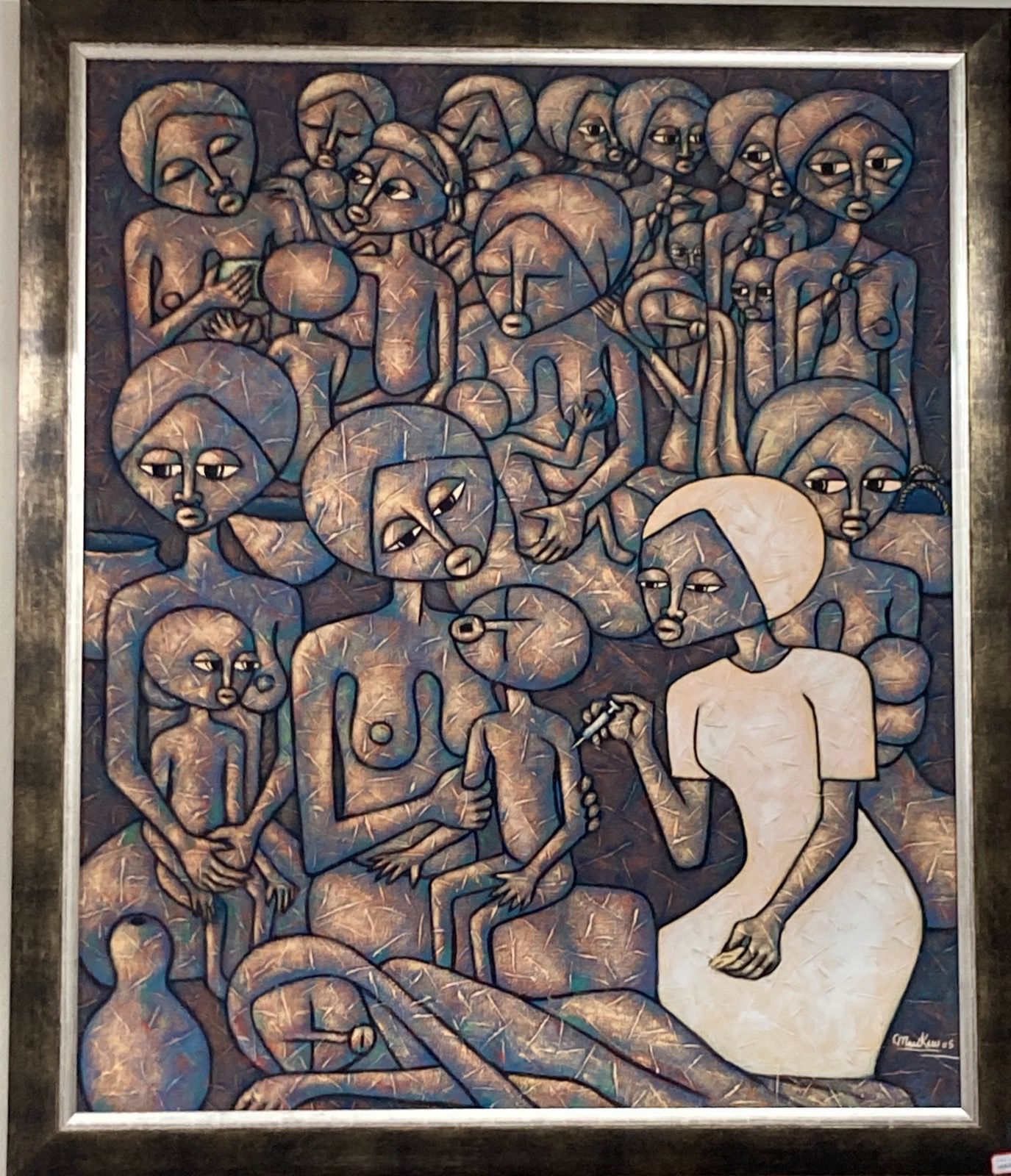
Savonia Article: Initiating the Future Health HUB Project
This work is licensed under CC BY-SA 4.0
This article kicks off a series of publications detailing the progress of the three-year Future Health HUB (FHH) project (1.8.- 31.12.2025), funded by Team Finland Knowledge (TFK) in collaboration with Savonia University of Applied Sciences and Instituto Superior de Ciências de Saúde (ISCISA).
The FHH project, in partnership with ISCISA, aims to develop the FHH model, facilitating multicultural, community-oriented projects for healthcare students. This model provides both physical (learning centers) and virtual (e-learning platform) environments at both universities. Service design methodology is utilized in the creation of the FHH model, with all student activities being curriculum- and evidence-based. This article explores the experiences of a service design expert, a public health teacher, and an information specialist regarding model development after a week-long workshop at ISCISA University from April 15th to April 19th, 2024.

Picture 1: Service design prototyping with bodystorming method
Developing a Service Path through Service Design
To promote the objectives of the Future Health Hub project, an understanding of the current state and prevailing conditions is crucial. Developing new practices or enhancing existing ones requires familiarization with existing structures, prevailing culture, and other influencing factors. Savonia University of Applied Sciences has initiated a student exchange with ISCISA, a healthcare university in Maputo, Mozambique. In April 2024, a workshop was held to focus on developing study-related internships within the project activities.
A key focus in Africa is on families’ preparedness and knowledge to ensure the safe development of children. The workshop explored these aspects through the creation of a service path, starting from reaching out to pregnant mothers at hospitals to engaging students in monitoring child development and conducting home visits. This contact work is part of the students’ practical training, supported by the use of open data and evidence-based practices.
The service path was developed through collaborative idea exchange, with different stages arranged in chronological order. The path was then tested using the bodystorming method, allowing participants to verify its functionality and identify any challenges. This hands-on approach was particularly effective in the African context, where participants’ immediate engagement revealed necessary adjustments to the model. The confirmed service path model will be piloted and refined in the coming months, incorporating feedback from students, teachers, and other participants.
Building Bridges: Enhancing Multicultural Learning
The involvement of teachers in project planning, guidance, and evaluation within the Future Health Hub model is crucial. During the week-long workshop, Savonia and ISCISA teachers collaborated to develop a joint methodology for implementing the pilot in autumn 2024. This collaboration provided healthcare teachers with unique insights into local nursing education and allowed them to engage in a multicultural environment.
The partnership between Savonia and ISCISA will facilitate future participation of students and teachers in multicultural learning, enhancing healthcare professional training, and promoting sustainable development and intercultural understanding. Working in Mozambique offers exposure to diverse healthcare practices and needs, which will, in turn, enhance the multicultural skills of both teachers and students, making them applicable in Finland as well. This collaboration aims to establish strong international ties in healthcare education, promoting diversity and inclusion.
Enhancing Evidence-Based Practice
Evidence-based practice (EBP) is integral to the Future Health Hub project, with Savonia’s library playing an active role in ensuring that students at both universities receive adequate guidance in finding evidence-based information. The goal is to enhance their knowledge of open educational resources (OER) and other reliable open-access materials, supporting their training and future projects.
Prior to the trip to Mozambique, an information specialist curated resources for the Edunia platform, covering EBP, open access, and general information seeking. These resources will be refined based on feedback and are crucial for linking guidance to real family training projects.
During the workshop, Savonia’s information specialist collaborated with ISCISA’s faculty responsible for research methods training, discovering commonalities in their work, such as database usage (Medline, PubMed) and thesis process queries. While Savonia’s library oversees information skills training, ISCISA’s library has a more traditional role. Establishing a contact person at ISCISA will enhance future collaboration within the FHH, ensuring both universities are well-equipped to support EBP in their curricula.
Authors:
Marja Gröhn-Rissanen, International Coordinator, Senior Lecturer, MSc, Rn. Savonia University of Applied Sciences, Department of Health care, marja-liisa.grohn-rissanen@savonia.fi.
Antti Kares, Lecturer, Savonia University of Applied Sciences, Department of Desing, antti.kares@savonia.fi
Terhi Kulo, Nursing Lecturer, MHS, PHN, Savonia University of Applied Sciences, Department of Health care, terhi.kulo@savonia.fi
Tanja Savolainen, Information Specialist, MSc, Savonia University of Applied Sciences, Library and Information Services, tanja.savolainen@savonia.fi